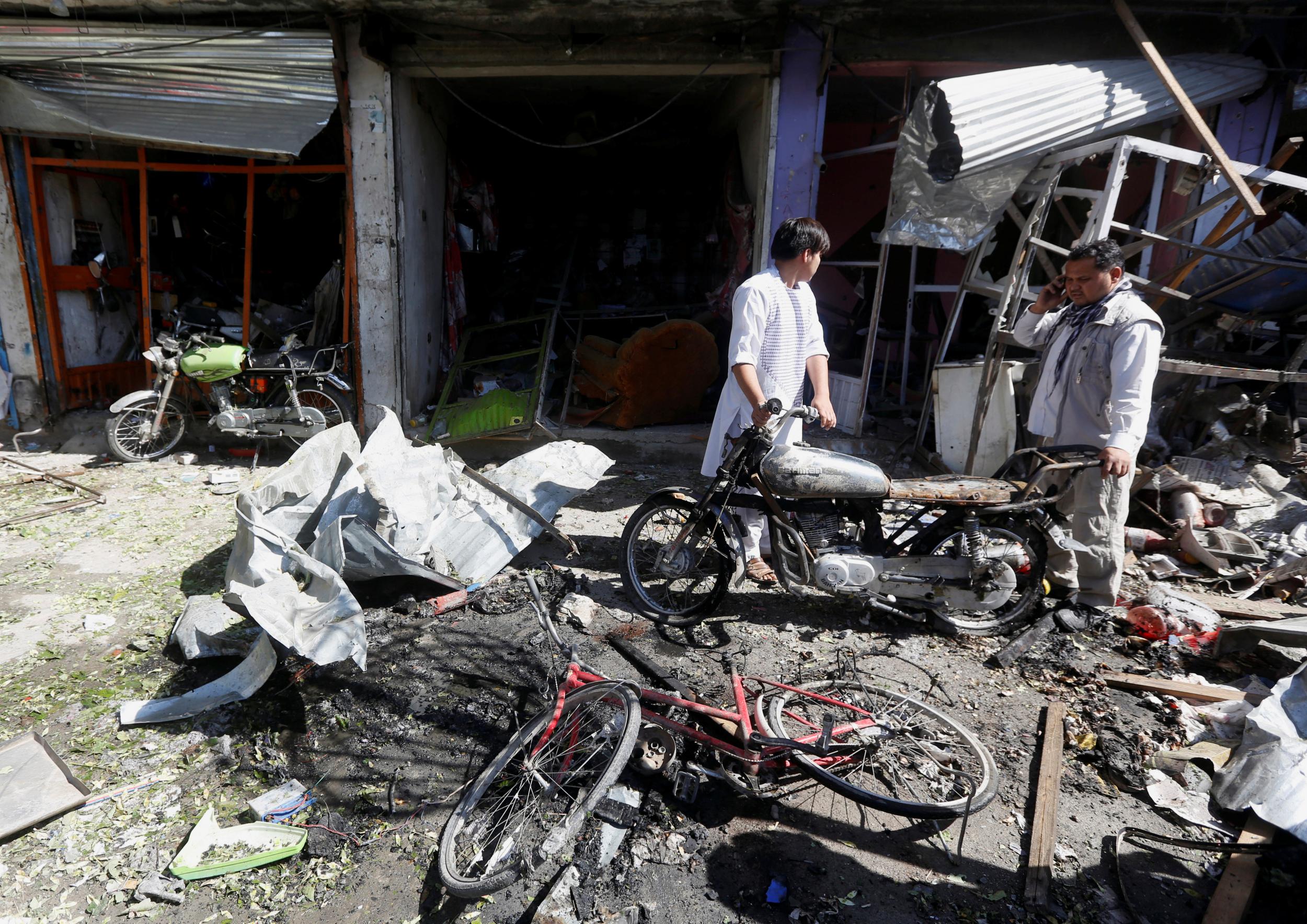Kabul attack: Taliban claim suicide bomb that killed at least 35 in Afghanistan's capital
Explosion destroys bus carrying government employees on their way to work as civilians bear the brunt of country's unrelenting militant violence

The death toll in a suicide blast that hit the Afghan capital of Kabul has risen to 35, officials have said.
The car bomb detonated in a Shia neighbourhood in the west of the city during Monday rush hour, ramming into the side of a bus carrying government employees on their way to work, interior ministry Basir Mujahed told media.
At least 24 people were killed and 40 more people were injured in the explosion, including children, he added, and the death toll was likely to rise. An official speaking on condition of anonymity said the number of dead was at least 35.

“The bomber attacked at one of the busiest times of the day,” Mr Mujahed continued. “There were traffic jams with people going to work and to the university and schools. Many of the shops had just opened.”
The bus, three other vehicles and several nearby businesses were destroyed in the blast, which sent a tower of black smoke into the sky and shattered the glass of windows up and down the street.
The Taliban was quick to claim the attack, which it said killed 37 “intelligence officers”. The Afghan government said many of those killed were employees of the mines and petroleum ministry.
It occurred near the residences of several prominent politicians, including deputy government chief executive and Shia Hazara leader Mohammad Mohaqiq. It is not yet clear what the militant organisation’s intended target was. Despite the Taliban’s insistence it only targets government and military personnel, is not unusual for Shia neighbourhoods to be targeted by the Sunni extremists.
In a statement, Afghan President Ashraf Ghani condemned the violence as a terrorist attack.
The incident is the latest in a wave of militant violence to hit the city amid an insurgent offensive across the country. At least 1,662 people have been killed in attacks carried out by either the Taliban or Isis in the first six months of 2017.
In the most high-profile recent blast, a huge bomb hidden inside a water tanker detonated in Kabul’s de facto diplomatic quarter in May killed at least 150 people, according to UN figures.
The incident prompted protests and calls for government officials to resign. Many people are losing patience with the weak and divided government of President Ghani, which they say is not doing enough to protect the people from militant violence.
Monday’s carnage gave rise to fresh anger and frustration. “Every day people are dying. If you cannot bring peace then please leave and bring other people,” Amir Helam, whose friend died in the explosion, told local Tolo TV.
Although the Taliban lost control of Afghanistan following the 2001 war, it has steadily regained ground since the majority of US and allied troops left in 2014, and is now in control of some 40 per cent of the country.
The chaos has also allowed Isis to gain a foothold in Afghanistan’s remote eastern provinces.
Last month US President Donald Trump bowed to pressure from the Pentagon to allow the military to set its own troop levels to prevent the precarious security situation from deteriorating further.
A total of 13,000 US and Nato soldiers are currently in the country, although observers fear after 16 years of war Afghanistan has arrived at a stalemate in the fight against extremism.
While it is expected that 4,000 extra troops will be deployed, there is still no coherent strategy from the Trump administration on the US’s future involvement.
Join our commenting forum
Join thought-provoking conversations, follow other Independent readers and see their replies
Comments
Bookmark popover
Removed from bookmarks